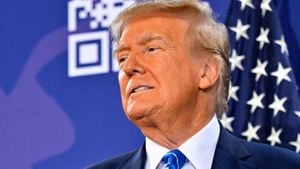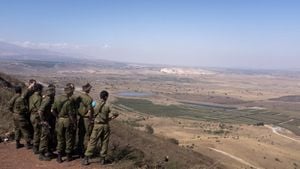PUTRAJAYA, Nov 8 — Malaysia is gearing up to host the Asean Summit next year, and Prime Minister Datuk Seri Anwar Ibrahim has rolled out the red carpet for China’s leaders, extending invitations to both President Xi Jinping and Prime Minister Li Qiang during his recent official trip.
This strategic move has been largely viewed as symbolic, reflecting Malaysia's capabilities and assertiveness as it navigates the complex web of international relations.
Government spokesman Fahmi Fadzil underscored the importance of these invitations, stating: “This demonstrates Malaysia’s sovereignty — a nation capable of engaging with any country willing to form partnerships.” This openness is central to Malaysia's foreign policy, which aims to cultivate friendships and trade relations across the globe.
Anwar's diplomatic overture sets the stage for meaningful discussions within the Asean framework and beyond, potentially leading to greater cooperation among Southeast Asian nations and China.
On the heels of this invitation, Prime Minister Anwar is set to undertake additional diplomatic missions, including travel to Egypt to meet with President Abdel Fattah al-Sisi, before heading to Saudi Arabia on November 11 for the Organisation of Islamic Cooperation (OIC) emergency meeting. His itinerary doesn’t end there; he will also participate in the Asia-Pacific Economic Cooperation (Apec) summit and the G20 summit in Brazil at the request of President Luiz Inácio Lula da Silva. According to tradition, as the chair of Asean, Malaysia typically receives invitations to the G20 summit.
The impact of Anwar’s diplomatic efforts is expected to reverberate through the region, emphasizing trust and collaboration over isolation and tension. Such sentiments drew mixed responses from several other Asean nations, with some expressing hope for the fruitful outcomes of Anwar’s push for closer ties with global powers like China.
Experts believe these relationships could play pivotal roles, especially as Asean grapples with pressing regional issues such as economic recovery and security challenges.
The upcoming Asean Summit is not just another diplomatic gathering; it symbolizes the potential for enhanced regional cooperation at a time when global uncertainty looms large. Leaders will discuss pressing issues such as trade, climate change, and health security, all topics more relevant now than ever.
With the summit approaching, anticipation is high for Malaysia’s ability to balance the needs of Asean countries and the influence of larger powers like China. Concerns expressed by certain nations about increasing Chinese assertiveness could emerge as contentious points of discussion.
While specifics of the summit’s agenda are yet to be outlined, it is clear Anwar's administration seeks to portray Malaysia not only as a regional hub but also as a mediator capable of facilitating dialogue and resolving potential disputes.
Malaysia's invitations to Chinese leaders signal the country’s willingness to forge stronger bilateral ties with one of its most significant trading partners. This collaboration is consistent with broader Asean goals to deepen ties with external partners.
Staying aligned with Asean principles of non-interference and consensus building, Malaysia’s approach appears strategic, aiming to carve out space for enhanced cooperation without alienation.
At this juncture, expectations are high. The Asean Summit is poised to be a stage for Anwar to demonstrate his leadership both domestically and regionally, showcasing Malaysia's diplomatic acumen and its vision for collaboration.
Observers around the world will be keeping their eyes peeled for the outcomes of this initiative, as they could influence regional dynamics and Malaysia’s standing on the global stage.



